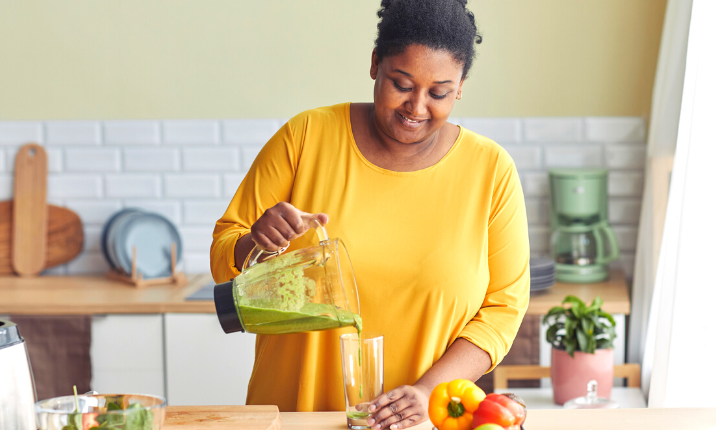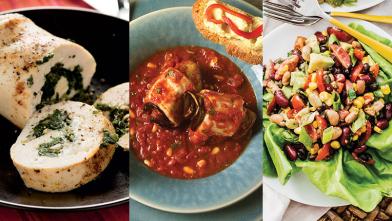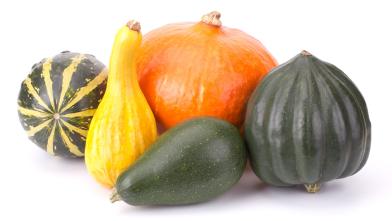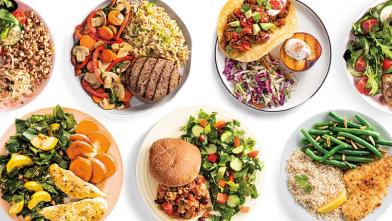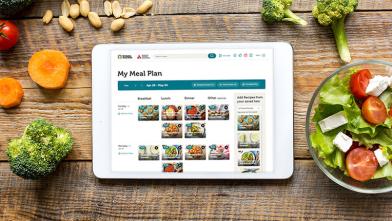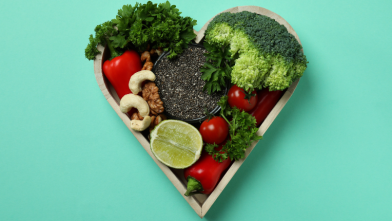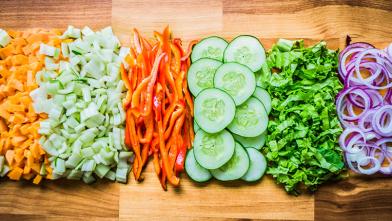Every woman has different nutritional needs depending on her stage of life, but here are four essential nutrients important to women’s health.
Calcium
Calcium is essential to build and maintain strong bones and avoid osteoporosis. Osteoporosis is a common condition where bones become weak and deteriorate. But calcium does more than support bones!
Women need calcium to keep their heart, muscles, and nerves functioning properly. Studies also suggest that calcium with vitamin D may protect against cancer, diabetes, and high blood pressure.
Foods Rich in Calcium
Because our bodies don’t produce calcium, we need to get it from what we consume. The best natural sources include dairy products like low-fat cheese, milk, and yogurt; dark green leafy vegetables such as kale, broccoli, bok choy, and spinach; and fish with edible soft bones like sardines and canned salmon.
Vitamin D
There are several benefits to vitamin D. One is to help your body absorb calcium and phosphorus. Vitamin D also supports immune health and reduces inflammation.
Vitamin D is produced in our skin through the sun’s ultraviolet-B rays. However, we can’t depend on sufficient production from sunshine for a variety of reasons like limited time outdoors, darker skin tones, wearing sunscreen, low-light seasons, and living in northern latitudes where UVB light is weaker.
Foods Rich in Vitamin D
Vitamin D is only produced in animal-sourced foods like oily fish (such as salmon, sardines, swordfish, and tuna), beef liver, and egg yolks. Therefore, vitamin D is often part of fortified foods like cereal.
Because vitamin D is so difficult to get adequate amounts in diet alone, you may want to consider a supplement. However, be sure to talk to your health care provider about any vitamins and supplements you are taking to ensure they do not interact with any medications you are taking.
Iron
Iron plays an important role in helping to make red blood cells, which carry oxygen throughout the body. The amount of iron you need is higher for women who are pregnant.
Foods Rich in Iron
You can find iron in a variety of foods, including lean meat, seafood, poultry, iron-fortified cereals and breads, white beans, lentils, spinach, kidney beans, peas, nuts, and some dried fruits like raisins. Iron from plant sources are absorbed better when eaten with meat, poultry, seafood, and foods that have vitamin C.
Women who follow vegan and vegetarian eating plans that do not include animal protein, should be sure to include an abundance of the vegetables, grains, and beans that contain iron. If you decide to take iron supplements instead, be sure to take what your doctor recommends since too much can be harmful and can interact with medications or other dietary supplements.
Folate (Folic Acid)
Folate, also referred to as folic acid or vitamin B9, helps with red blood cell formation and healthy cell growth and function. Research also suggests it may help reduce risk of certain cancers, and in combination with vitamins B-6 and B-12, help control the risk of cardiovascular disease. For pregnant women, adequate folic acid intake is especially important because it can prevent birth defects.
Foods Rich in Folate
There are plenty of options when it comes to foods that contain folate. Folate can be found in foods ranging from poultry, meat, dark green leafy vegetables, beans, and nuts. It is also found in fruits like oranges, lemons, bananas, melons, and strawberries. However, the folate content of these foods is small, and this is why so many foods are fortified with folic acid, which is the man made form of naturally occurring folate.
You can reach the recommended amount of folic acid from a healthy eating plan. In fact, fortified breakfast cereals often have the daily recommended amount in just one serving.
Talk to Your Health Care Provider
Vitamins and minerals can play an important role in living a healthier lifestyle and managing your diabetes journey. The amount of each of these (and other) nutrients varies from person to person depending on factors such as age, lifestyle, chronic conditions, medications, etc. Talk to your health care provider about the amount and type of vitamins that are right for you. Learn more about vitamins and diabetes.
